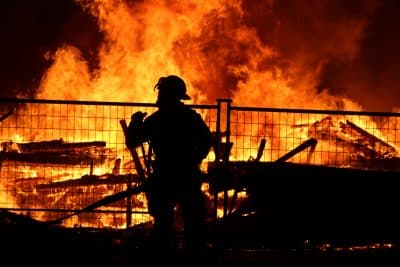Get the help you need right now 855-900-8437 Get Help Now
Get the help you need right now 855-900-8437 Get Help Now
February 19, 2020
According to the Journal of Occupational Health, approximately 20 percent of fire fighters and paramedics will experience post-traumatic stress disorder (PTSD) at some point in their career. Unfortunately for some, shame is a key component of the emotional and cognitive experience of this condition. This feeling of shame may be one of the biggest reasons fire fighters don’t seek treatment for behavioral health problems.
To learn more about the connection between shame, guilt and trauma, see our previous blog, The Price of Living: Survivor’s Guilt in Fire Fighters.
Regardless of whether you’ve witnessed something traumatic — believing you are a bad person or deserve to suffer indicates an abnormal traumatic reaction, which requires some professional attention. Consider the following:
The negative stigma surrounding PTSD and other behavioral health disorders is being reduced by awareness programs, trainings, and workshops. Fortunately, more fire fighters are recognizing and acknowledging that it is okay to ask for help.

If you or someone you know struggles with a behavioral health or substance use disorder, recovery is possible. At the IAFF Center of Excellence for Behavioral Health Treatment and Recovery, our staff understands how to meet your specific needs. Call to speak to a representative about treatment options. We’re here 24 hours a day, seven days a week. The call is free, confidential and there is no obligation.
Sources:
International Association of Fire Fighters. “PTSD and Cancer: Growing Number of Fire Fighters and Paramedics at Risk.” August 2016. Accessed January 7, 2020.
World Health Organization. “Mental Health Disorders Affect One in Four People.” October 4, 2019. Accessed January 7, 2020.